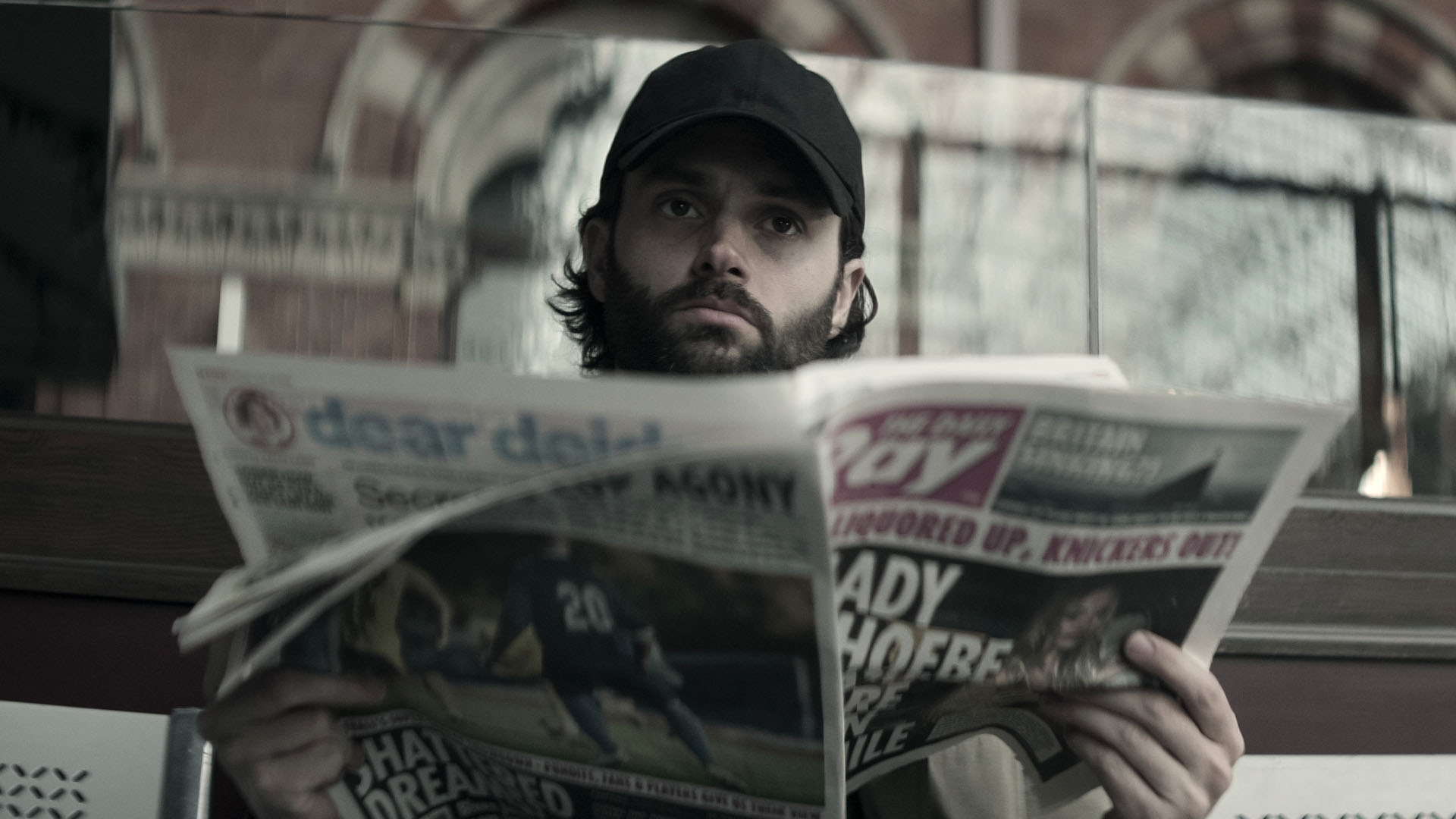This could be the season that makes or breaks Netflix thriller You

We’re all drowning in content—so it’s time to highlight the best. In her column, published every Friday, critic Clarisse Loughrey recommends a new show to watch. This week: Netflix’s obsessive thriller You.
Is Netflix responsible for a case of mass Stockholm Syndrome? I had to repeatedly remind myself, while watching You’s fourth season, that our Joe Goldberg (Penn Badgley)—wearied intellectual and perpetual outsider—is actually a full-blooded stalker and murderer of the psychopathic strain. But that’s the hustle at the heart of You, isn’t it? Here’s the worst guy imaginable, who is also conventionally attractive, socially gifted, and poetic enough in his justifications that you’re consistently tricked into rooting for him, only for the camera to swing back around and expose you for your hypocrisy.
As shlocky and silly as You can be—like Riverdale for people with houseplants and a copy of Jia Tolentino’s Trick Mirror—I still find myself persistently defending it against the accusation that it’s trash TV. There’s too much elegance in its construction, in how it forces us to root against both karma and justice because no more Joe would mean no more show. Because if he’d truly found his soulmate in Love Quinn (Victoria Pedretti), his settled existence in domestic, suburban life would simply turn him into one of us. We need Joe to remain a monster, and for Badgley to maintain his devilish game of attraction and repulsion, in a performance of such pitch-perfect charm and queasy arrogance.
I’m fascinated then by the decision to divide You’s fourth season, like Stranger Things before it, into two parts—because five episodes in, I’m on tenterhooks. For once, Joe isn’t the one with something to hide, and that’s both a very exciting and potentially ruinous prospect. Where do we stand if Joe is no longer predator, but prey? How violently does that send our own moral compasses spinning? This could be the season that makes or breaks You as a show.

We find Joe in Europe, having relocated to maintain the illusion of his untimely death at the hands of Love, and to go in search of the latest object of his obsessions, librarian Marienne (Tati Gabrielle). He ends up in London, with a fake name—Jonathan Moore—and a cosy job as a literature professor. He’s the kind that encourages constructive disagreement and sets non-canonic authors like Ted Chiang (who wrote the short story that Denis Villeneuve then adapted into 2016’s Arrival). His students love him. Obviously. And the university’s small cabal of former Etonians and people who don equestrian gear as daywear, among them Malcolm (Stephen Hagan) and his current hook-up Kate (Charlotte Ritchie), treat him like their own pet Talented Mr Ripley.
Our Joe is now a more self-aware Joe—one that, last season, finally admitted out loud that he’s dealing with some serious “mommy issues”. He’s made a solemn vow to leave the murder behind. The possessiveness around women, too. And though his lovely, new Kensington digs come with a direct view into Malcolm and Kate’s apartment, he resists the temptation for a little Rear Window action. Then, a bloodied spanner is thrown into the mix. Joe is drawn into what he resentfully describes as a “whodunit, the lowest form of literature”, that’s really a test to see whether his powers of observation are really all he’s thought them to be—or mere delusion.

You’s London jaunt, surprisingly, has a little more to it than Kate Middleton accents and tourist hotspots. Class has always been a factor in this story (Love’s family were ultra-rich, if you remember), but it’s never been quite as foregrounded as it is here—even amongst the elite, there’s a careful hierarchy of power, underpinned by a toxic brew of entitlement and self-hatred, and spurned on by ugly family legacies. These people are so hideous, in fact, that Joe really does start to come across as the good guy. By the end of episode five, he’s even achieved a moment of personal growth.
Could Joe Goldberg really become a better man? Or will he always be drawn back into his old temptations? Even if he were capable of change, would that erase the sins of his past? Those are some pretty hot-topic moral questions. And it’s all going to come down to how You (Part Two) answers them. It could be brilliant. It could also be very, very bad. We’ll see.



















